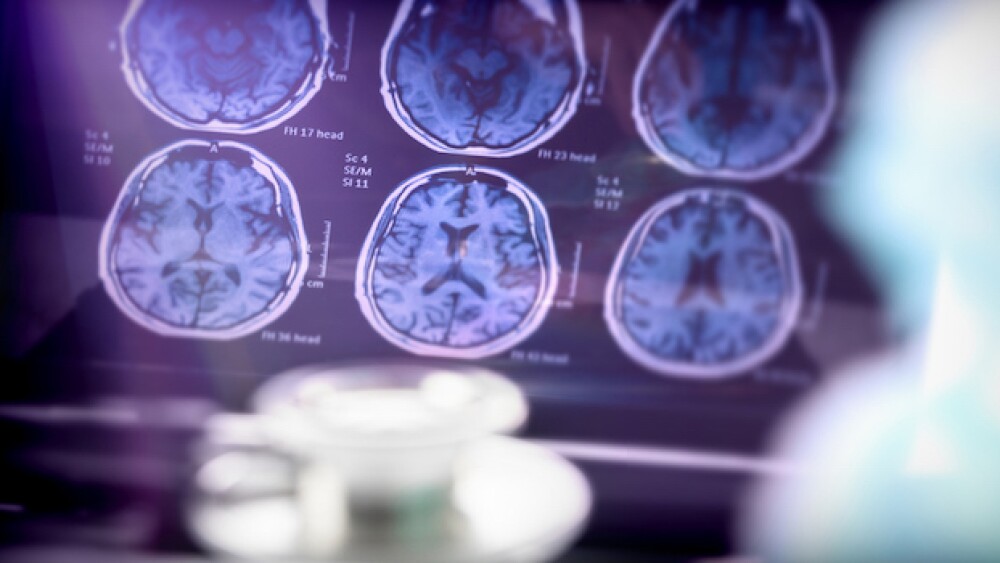A third-party audit found no integrity and reliability problems with data from BioXcel Therapeutics’ Phase III trial. The company intends to file a supplemental New Drug Application for its candidate BXCL501.
Pictured: Images of brain scans/iStock, digicomphoto
BioXcel Therapeutics on Wednesday revealed the results of an independent, third-party audit of its oral candidate BXCL501 in the Phase III TRANQUILITY II trial in Alzheimer’s disease, which found neither evidence of misconduct or fraud nor issues with the integrity and reliability of its data.
Based on this review, and the previously announced findings of TRANQUILITY II, the Connecticut-based biopharma believes that it has enough to support a supplemental New Drug Application (sNDA) for BXCL501, which it is proposing as an acute treatment for agitation associated with dementia in probable Alzheimer’s.
“We believe these results of an audit by a respected, independent firm validate the integrity of data from the single site in question and add to the body of clinical evidence we intend to include in our sNDA submission,” BioXcel CEO Vimal Mehta said in a statement.
The company traded around 41% higher in pre-market Wednesday in response to the news, according to Seeking Alpha.
BioXcel has recently concluded a Type B/Breakthrough meeting with the FDA to discuss its development plans for BXCL501 and expects to receive the minutes in the first half of November, Mehta said in Wednesday’s announcement.
Further updates regarding TRANQULITY and the potential sNDA will be provided in the company’s third-quarter report.
BioXcel posted findings from TRANQUILITY II in June 2023. Results showed that compared with placebo, BXCL501 treatment resulted in a significant 39% reduction in total scores in the Positive and Negative Syndrome Scale-Excitatory Component, a validated tool to measure agitation. The drug candidate was also found to be safe and most of its side effects were mild or moderate in severity.
At the time, however, BXCL501’s promising performance was overshadowed by allegations of misconduct by its investigator. According to an SEC filing, an FDA inspection found adherence and reporting issues with the principal investigators at one of its trial sites who enrolled approximately 40% of all participants in TRANQUILITY II.
These issues included the failure to adhere to the investigation plan and to use approved informed consent forms, as well as delays in reporting a serious adverse event (SAE) in one of the study participants.
In May 2023, BioXcel itself discovered that this same investigator “may have fabricated email correspondence purporting to demonstrate that the investigator timely submitted” of an SAE report— different from the incident the FDA cited in its investigation—to the company’s pharmacovigilance safety monitor. BioXcel eventually confirmed that this communication had indeed been fabricated.
After the data were unblinded, BioXcel found that the SAE in the fabricated correspondence occurred in the placebo arm. The investigator has not participated in any other trial sponsored or conducted by the company.
Tristan Manalac is an independent science writer based in Metro Manila, Philippines. He can be reached at tristan@tristanmanalac.com or tristan.manalac@biospace.com.






